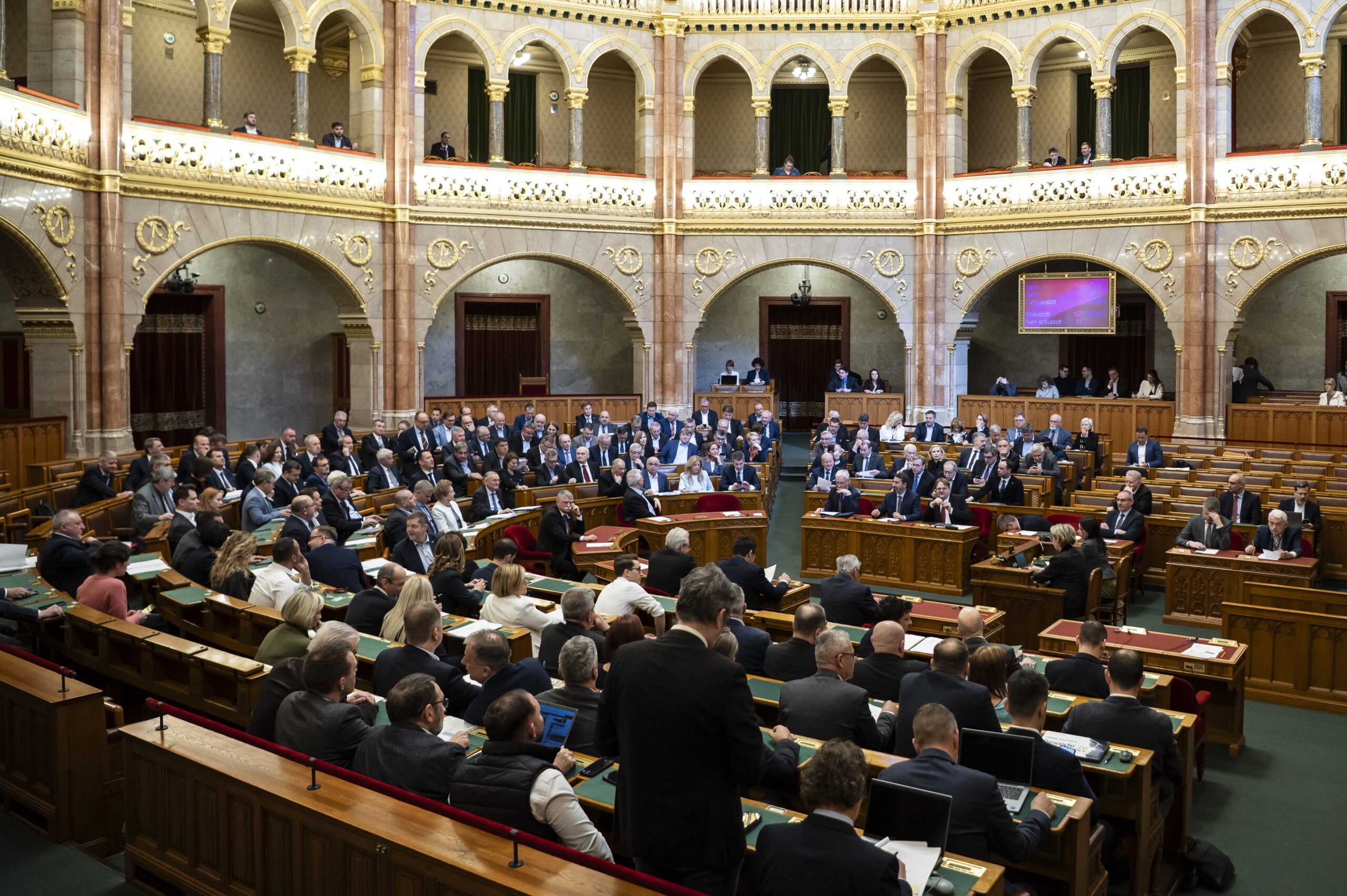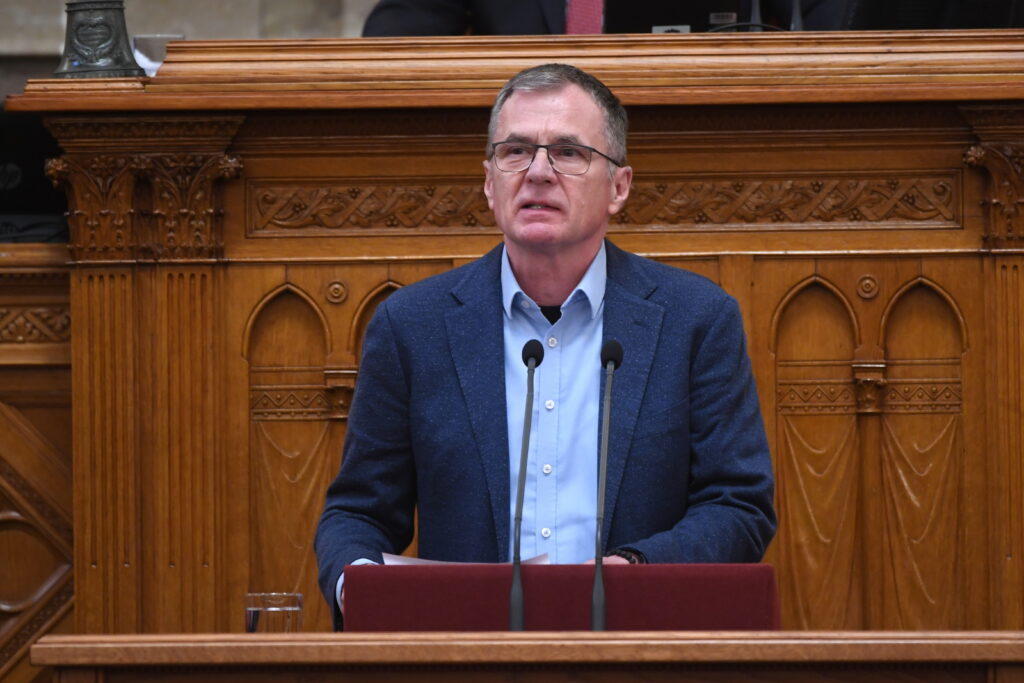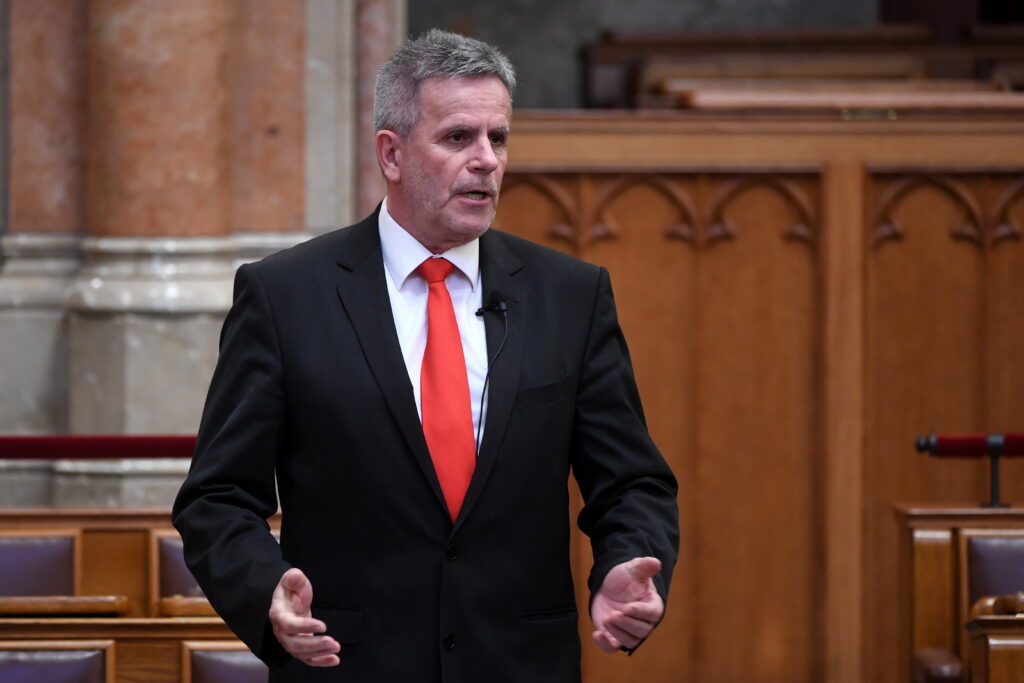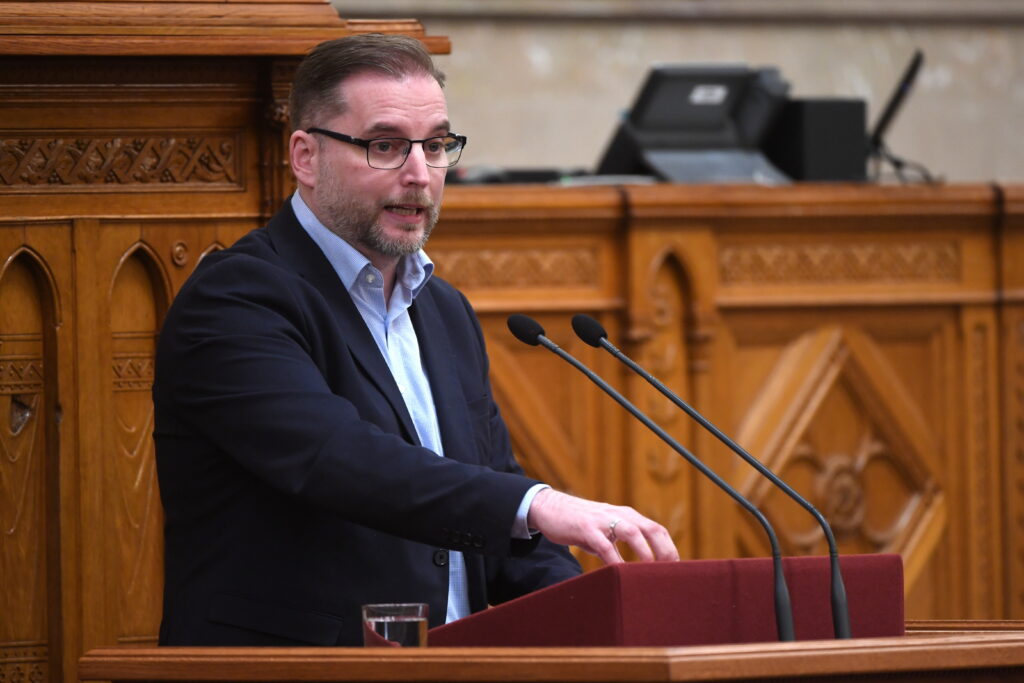
Never before has such a large quantity of "crystal" been seized.Continue reading

Parliament began its session on Wednesday with a debate on a bill banning the production, use, distribution, and promotion of drugs. Under the proposal, the police would be able to detain people in a state of altered consciousness in public places for up to 72 hours, particularly if they are seriously harassing others or disturbing public peace.
The bill also provides for unlimited mitigation of penalties for consumers who identify the distributor to the authorities, and for the temporary closure of businesses where drug offenses are committed for at least the second time in a year.
Fidesz politician László Horváth, who opened the debate as one of the authors of the bill, stressed that drugs are not a solution to anything, but they destroy everything, wrecking people and communities. He emphasized that zero tolerance is the right approach.

László Horváth. Photo: MTI/Kovács Attila
The aim of the proposal is therefore to provide a legislative environment that both arms those who oppose distribution and shields society. Horváth added that he agrees with the approach that the physical presence of drugs should be tackled first.
Prevention and rehabilitation are also important, but they are not included in the current package,
he noted.
Zoltán Varga (DK/Democratic Coalition) said that the government had an inestimable responsibility for the spread of illegal drug use and trafficking, while pointing out that the existing law on the prohibition of drugs is currently one of the strictest in Europe.
The opposition MP also added that although they fully support stronger action against drug traffickers, they reject the criminalization of young people for smoking a single joint. He believes that the deterrent to drug production and distribution is not the mindless increase in penalties, but the effectiveness of detection.

Zoltán Varga. Photo: MTI/Kovács Attila
MSZP (Hungarian Socialist Party) politician Tamás Harangozó called it the responsibility and failure of the government that after 15 years of unlimited powers and two-thirds of the votes, such a situation has developed regarding drugs in Hungary. He recalled that in 2013, the government adopted a strategy promising a drug-free Hungary by 2020, but it did not take into account that strict punitive policies do not replace prevention and harm reduction with a social and health approach.

Tamás Harangozó. Photo: MTI/Kovács Attila
He also pointed out that back in 2016, Károly Czibere, State Secretary of the Ministry of Human Resources, spoke out against the designer drug “pandemic,” saying that if no intervention is taken, “generations will fall into oblivion.”
Responding to the criticism, Horváth asked
why is Fidesz the only party dealing with this issue? It is only those who have never had any proposals or worked to make society more receptive to drugs who are challenging the proposal.”
Asked about the proposal’s over-dominance of criminal policy, he replied: “if it is illegal to produce drugs, how can anyone ask for their consumption to be allowed?” He also drew attention to drug-related violence, pointing out that it is dangerous to claim that “a joint will harm no one.”
“There are no good drugs, no bad drugs, no soft drugs, no hard drugs, there are only drugs,” he stressed, adding that it must be said out loud that the user is not necessarily a victim, but often a danger to society.
Via MTI, Featured image: MTI/Bodnár Boglárka